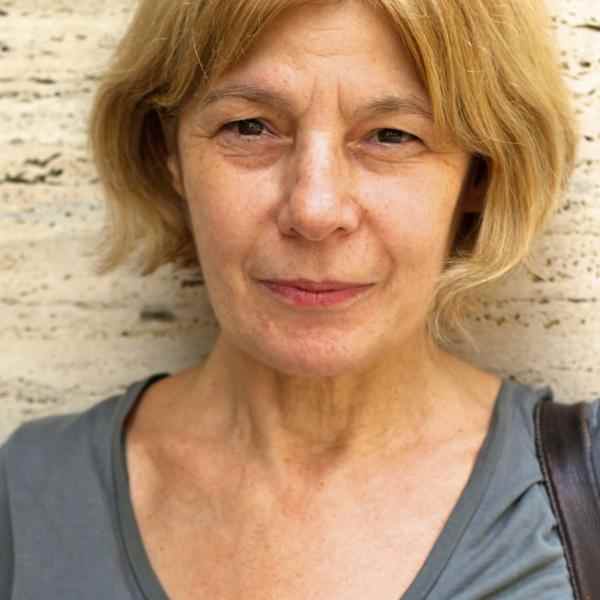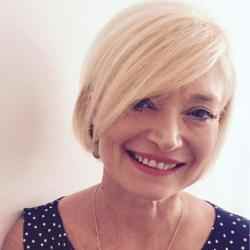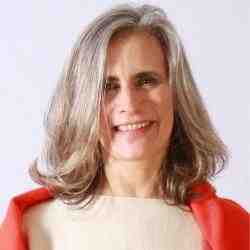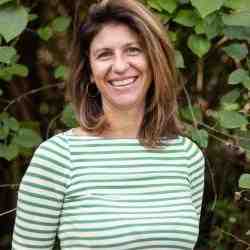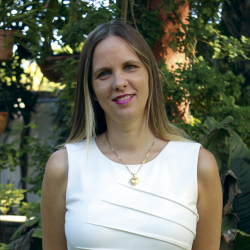Introducción
Zsuzsa Csato is promoting independent living as a viable option for people with mental handicaps. She is empowering families to care for dependents at home and then move them into independent living situations. By helping both the families and the persons with handicaps prepare and deal with the transition, she is preventing people with handicaps from being forced into institutional environments.
La idea nueva
Zsuzsa's "transition" training program involves both the mentally handicapped and their parents in the transition from institutional group or family homes to independent residences. She works to build the capacity of the handicapped to take care of themselves, enabling them to be able to maintain a job, care for themselves, and perform a variety of tasks in their new homes. Her work with parents includes organizing families into small shareholder groups to negotiate the purchase of apartment. She runs apartments, offering job counseling to parents who had spent years at home caring for their children. The idea of the mentally handicapped living on their own is a new concept for Hungary's social service agencies as well as for the private sector.
El problema
Under the communist regime, the mentally handicapped were removed from their families and placed into state institutions far from urban centers. In the early 1990s, an additional program of "group homes" was introduced, which kept the mentally handicapped close to home while still removing them from family life. The new concept of group homes ensured better living conditions and a limited array of responsibilities for those individuals living in the homes. Basically, this option was available only to families who had the financial means to support their loved ones. Other initiatives attempted by the state have failed either because of flaws in the program itself or because of a lack of sustained government commitment to the initiative. For example, the government started a daycare program that was discontinued for lack of state funds when the funding was reallocated toward higher priority programs.
Some families decided to opt out of the state system and raise children at home. They discovered that their children were learning, benefiting from participation in organized sports and field trips, and beginning to be accepted in social situations in public. Yet because of the enormous responsibility the parent of a handicapped child has, many of these parents started to burn out and face marital problems, often by the time the child was 8 or 10. They also faced financial strain and lacked outside support.
The children raised in these group homes or the homes of their families are now reaching the age where most young adults begin the transition to independent living; there is, however, no service in place to allow such a transition. This fact places additional burdens on the family, while simultaneously preventing handicapped individuals from participating in contributing to society and stunting their personal and emotional development.
La estrategia
Zsuzsa's approach is first to create a "living success story" where mentally handicapped individuals leave home and move into a shared family-size apartment where each person has his or her own bedroom. Through a step-by-step approach, Zsuzsa is testing this with an initial group of six to eight people. First, there is a preparation period of two to three years where individuals learn skills which will help them live independently, like cooking, cleaning, traffic safety, and transportation. In the second phase of the program, participants develop the skills needed for work and then go to a fieldwork site where they get training and job search assistance. Zsuzsa uses a "halfway room" in her center where young people start to spend their first nights away from home. With the assistance of center staff, young clients are gradually able to spend more and more time away from home. When they are "ready," young clients are helped with purchasing and decorating their new apartments and become involved in programs with the new community; Zsuzsa is working with a coalition of insurance companies to secure "grouped" apartments–an apartment network with a support center nearby so handicapped individuals can live in proximity to each other. After these individuals start real work at their final worksite, they move into their new, independent homes. By this time, the other inhabitants, shops, and centers in the area are informed about, and prepared for, their new neighbors. Education and community programs continue with monthly monitored basic life-skill training sessions and leisure activities. These programs also address the typical feelings of loneliness and alienation that young disabled people face when becoming independent.
Zsuzsa has worked out an arrangement with families to collectively cover the costs of purchasing an apartment. The cost per family is approximately $50 to $60 each month for 15 years. Two to three mentally handicapped young persons will share one apartment, which is typically one of four apartments for handicapped in a building of 25-50 to 100 apartments. Zsuzsa covers the cost of having one person in the apartment block to check residents daily. She oversees government regulations to ensure that government stipends ($175/month) will continue to be given to people who choose to live independently.
Three clusters of interested parents outside the capital are following her work and want to replicate it as soon as the pilot has been completed, which is estimated to be in 2004. She is also working with 30 other groups and parent clubs throughout the country. Ultimately, Zsuzsa intends to set up a network of coordination centers around Hungary. She is working to convince the state to accept this model as an official state service and finance handicapped individuals wishing to live independently. In order to do this, she needs to change the law regarding the minimum number of disabled people who are allowed to live together. She believes she can reduce the cost to the government of maintaining a handicapped individual by nearly 50 percent.
In order to help parents in the short term, Zsuzsa is offering home help, organizing developmental occupation, transport and assistance for children, conducting psychotherapy to ward off burnout, and offering legal help, job training, and individual self-help programs for parents. She carries out these services with the help of 30 to 50 volunteer professionals. To address the need for trained professional disability nurses or caretakers, Zsuzsa is working to establish training programs. She also organizes a tolerance film club and has convinced one of the city libraries to create a separate bookshelf with professional literature for parents. To deal with families who wish to move their family members out of group homes, Zsuzsa has established a 24-hour toll free hot line they can call for information.
La persona
Zsuzsa's second daughter was born in 1980 with Down's syndrome, the most commonly identified mental handicap in Hungary. According to government statistics, approximately 55 percent of all mentally handicapped people in Hungary are classified as suffering from Down's. After the birth of her daughter, Zsuzsa's friends turned away and her husband left.
Since childhood, Zsuzsa has always found herself in opposition to conventions, rules, and systems. She was almost expelled from high school because of her inability to keep quiet. When her daughter was four-years-old, Zsuzsa saw that kindergarten teachers were not keeping the classrooms clean; she organized parents to help out and clean the building and garden. These parents then paid for a sports teacher with their own funds. When her daughter was little, Zsuzsa led parents in getting the municipality to provide swimming lessons for the mentally handicapped. Zsuzsa realized that mobilizing parents and uniting forces could be an effective tool in lobbying and making social change.
While her daughter was young, Zsuzsa led a parents group that demanded changes in how their children were educated. By the time her daughter was 10, Zsuzsa had partly burnt out and started focusing on providing extracurricular activities while leaving the leadership of the parents' organization to others. But as her daughter got older, Zsuzsa saw that no one was addressing the problem of real independent living. She changed her priorities and came up with a step-by-step "supported independent life" program for the people with mentally handicapped and their parents.
Zsuzsa has been involved in the field of disability for about 20 years. She participated in the establishment of parents' clubs within the framework of the Down Association, which later changed its name to Society of People with Golden Heart. She also wants to create a similar network of doctors for adults. To be able to do so, she is lobbying the state healthcare system to change the present reimbursement system for doctors to allow them to treat adult mentally handicapped patients. Zsuzsa also developed a network of doctors motivated to treat disabled clients. She also managed to open the Down Ambulance for patients under 18 with Down's syndrome; it has now been working for five years.
